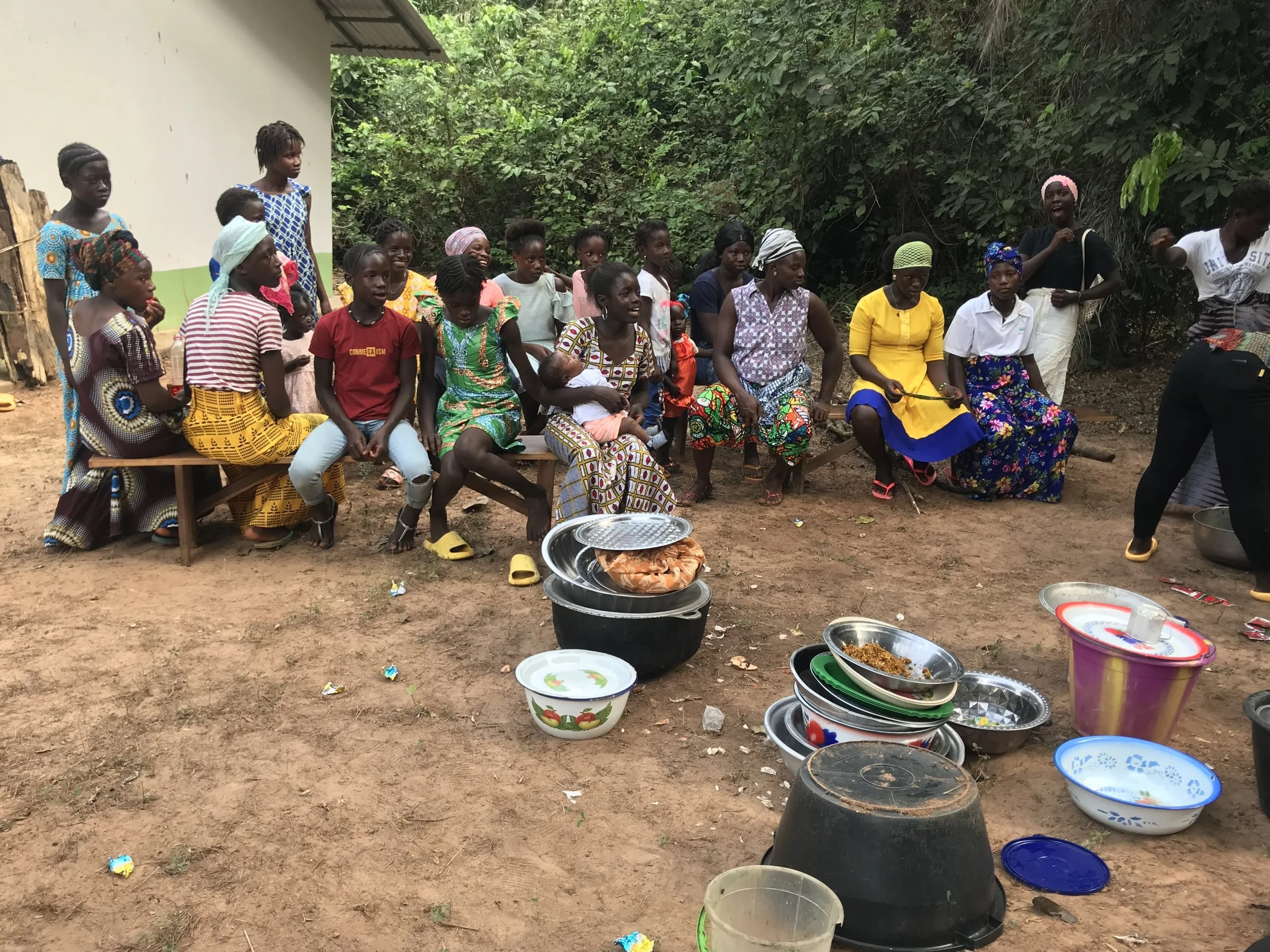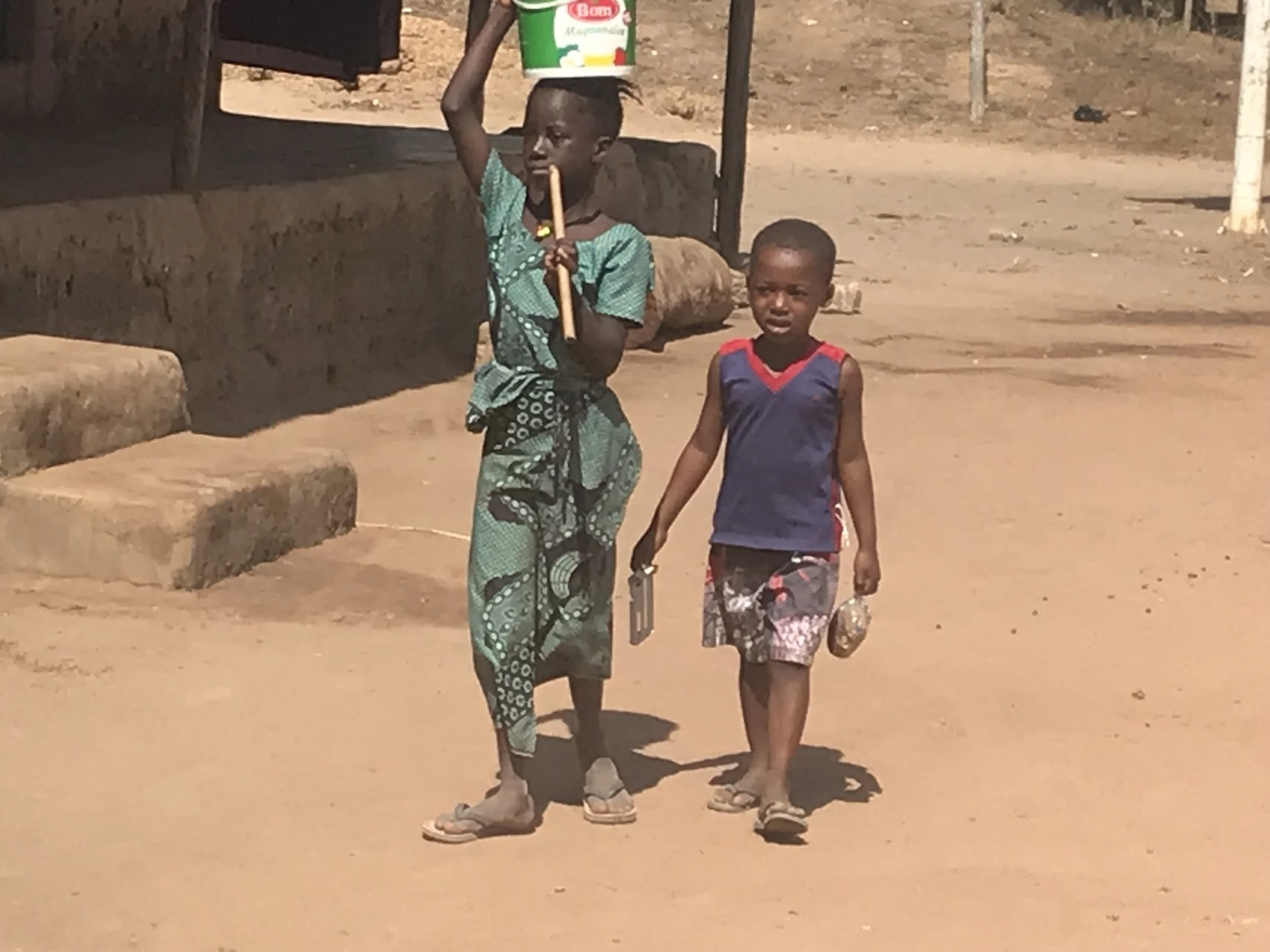
Guinea Bissau
-
Demographics
Population: 1,726,170 (2015 est.)
Infant Mortality Rate: 89.21 deaths/1000 live births (2015 est.)
Total Fertility Rate: 4.23 children/woman (2015 est.)
Nationality: Guinean
Ethnic Groups: 99% African (Balanta 30%; Fula 20%; Manjaca 14%; Mandinga 13%; Pepel 7%) European and Mixed Race less than 1%.
Religions: Indigenous 50%; Moslem 42%; Christian 8%
Languages: Portuguese (official), Creole, African languages
Literacy: Age 15 and over can read and write (2015 est.) Total Population: 59.9%; Men: 71.8%; Women: 48.3% (1997) -
Geography
Guinea Bissau is located on the west coast (bounded on the west by the Atlantic Ocean) of West Africa and borders on Senegal to the north and The Republic of Guinea Conakry to the east and south. The capital, Bissau, is a quiet and pleasant African city with a population of approximately 490,000 (2015 est.). The local cuisine is based on rice, poultry and seafood.
-
Agriculture
Main Products: rice, corn, beans, cassava, cashew nuts, peanuts, palm kernels, cotton, timber, fish
-
Climate
The climate is tropical, with a rainy season from June to October. The dry season is from December to April, with winds which originate in the interior of the continent. The humidity is high between May and October. The temperature varies with the altitude and the distance from the coast.
Guests should bring light tropical clothes, preferably cotton, and rain gear in the rainy season.Description goes here
-
Politics
Under the terms of the 1984 Constitution, the legislative power belongs to the National Assembly, which is composed of 102 members directly elected by the people for a term of four years. The executive power is held by the President of the Republic who is the Chief of State and governs with the help of a council of ministers led by the Prime Minister. The President is elected directly by the people for a term of five years. Public offices function from Monday to Friday for the hours 07:30 to 14:00.Description goes here
-
Currency
The currency is the CFA (African Financial Community) whose unit (1.00 FCFA) is divided into one hundred cents. There are notes in 10,000, 5,000, 2,500, 1000 and 500 denominations. The coins circulate in 250 100, 50 25, 10, 5 and 1 denominations. Guinea Bissau is a member of the Franco Zone and its currency is issued by the Banque Central des Etats de l’Afrique de l’Ouest (Central Bank of West African States).Description goes here
Economy
Considered one of the poorest countries in the world, Guinea Bissau depends mainly on farming and fishing. In recent years, the cashew crops have increased remarkably, and the country has now reached sixth place in fruit production. Guinea Bissau exports fish and seafood, and also small amounts of peanuts, palm kernels and timber. Rice is the main food crop of the country. However, the recent war between government troops and the military junta (1998) destroyed much of the country’s infrastructure and caused widespread damage to the economy. The civil war reduced the GNP by 28%, with only a partial recovery in 1999. Before the war, trade reform and release price were the most successful parts of the structural adjustment program of the country under the auspices of the IMF. The tightening of monetary policy and the development of the private sector had also begun to reinvigorate the economy. Owing to the high costs, the development of petroleum, phosphate and other mineral resources are not a short-term perspective. However, oil reserves found in coastal exploration, could provide the revenue needed in the long term.
History
Guinea-Bissau is a small West African nation bordered by Senegal to the north, Guinea to the east and south, and the Atlantic Ocean to the west. It gained independence from Portugal in 1973-1974 after a protracted liberation struggle led by the African Party for the Independence of Guinea and Cape Verde (PAIGC). The country has a population of about 2 million people, with diverse ethnic groups such as the Balanta, Fula, and Mandinka. Its economy relies heavily on agriculture, particularly cashew exports, and fishing, but it faces significant challenges, including political instability, weak infrastructure, and economic underdevelopment. Despite these difficulties, Guinea-Bissau is rich in cultural heritage, known for its vibrant music, traditional ceremonies, and the unique biodiversity of the Bijagós Archipelago, a UNESCO Biosphere Reserve.


